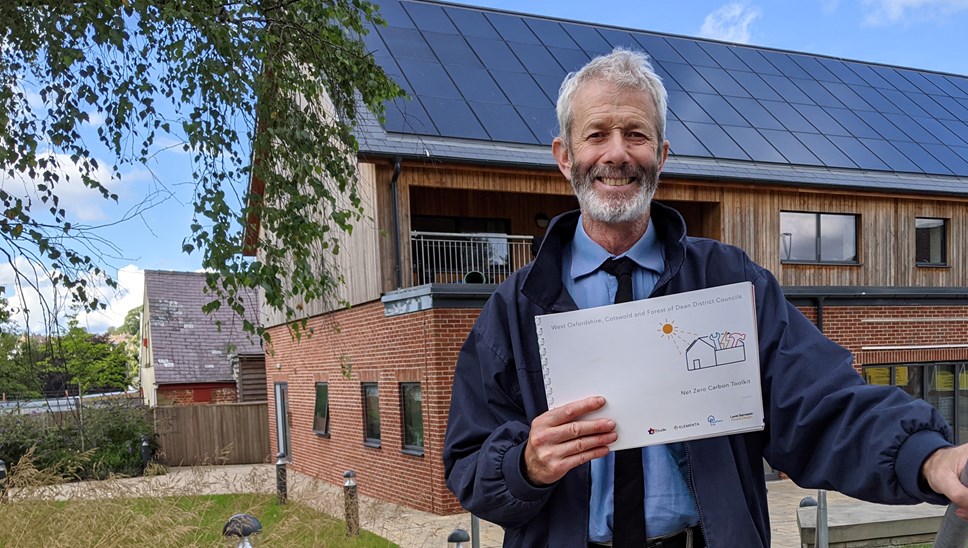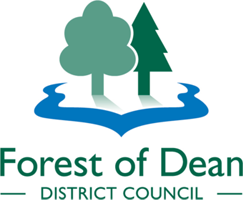
Free toolkit will lead green housing revolution in Forest of Dean
It will be easier for housing developers, builders and residents wanting to extend their existing properties, to go green from now on following the launch of a revolutionary new online toolkit packed full of help and advice.
Pulling together the very latest guidance on building low-carbon, low-energy homes, the Forest of Dean District Council has joined forces with Cotswold District Council and West Oxfordshire District Council to produce the Net Zero Carbon Toolkit covering each stage of a new build project, from pre-planning right through to construction.
While following the guidance is not mandatory, the new toolkit sets the standard for green builds that the District Council would like to see laid out in future planning policy to support its ambitious target of getting the district to net zero carbon by 2030 or sooner.
Cllr Chris McFarling, Cabinet Member for the Climate Emergency at Forest of Dean District Council, said: “Put together by experts in the field of net zero carbon homes, the toolkit is a tremendous resource and we want anyone considering a new build or home improvements to take a look at what measures they can put in place to reduce the carbon impact of their project.
“The housing sector is responsible for over 20% of all UK carbon emissions so homes are hugely significant when looking at how we fight climate change. We know residents are becoming more and more conscious about the climate emergency and want to know what they can do. This hands-on, easy-to-follow guide is heaped full with help and advice to point people in the right direction.”
The toolkit is aimed at builders, contractors and architects but it is equally relevant to residents looking to undertake a self-build project or looking to extend or retrofit their existing home.
Cllr McFarling continued: “In terms of retrofit, the upfront cost of installing carbon reduction measures and investing in renewable energies can be seen as a stumbling block but it doesn’t need to be. To help people budget, the toolkit recommends taking a longer-term view, to plan and make changes in a phased approach and gives indicative costs so homeowners can take steps at a time they can afford.
“Simple changes such as switching to low energy lighting can cost as little as £20 and still help reduce energy bills. More complex works, such as triple glazing and wall insulation, will cost more but householders should start seeing the financial benefits of these larger changes almost immediately. In the case of solar panels, once the initial cost of installation has been recouped, homeowners can potentially find themselves in a situation where they actually receive income by selling their excess electricity back to the grid.
“Making positive changes will not only help reduce the carbon footprint of our homes and deliver lower energy bills for those living in them, but will create homes which are more comfortable to live in and prepared for the extremes of temperature we can expect to see in the future.”
The toolkit has been funded by the Local Government Association Housing Advisers Programme, which supports local authorities seeking to innovate to meet the housing needs of their communities.
To encourage everyone to start making the best environmental choices and switch to low-carbon homes, the Net Zero Carbon Toolkit is available to anyone, including commercial organisations.
The document is now available for free download from the Forest of Dean District Council’s website: www.fdean.gov.uk/netzerocarbontoolkit.
Contact Information
Forest of Dean Communications Team
Notes to editors
Notes to editor:
The Net Zero Carbon Toolkit has been developed by Etude, the Passivhaus Trust, Levitt Bernstein and Elementa Consulting.
Photo shows:
Cllr Chris McFarling, Cabinet Member for the Climate Emergency at Forest of Dean District Council holding a hard copy of the Net Zero Carbon Toolkit.
